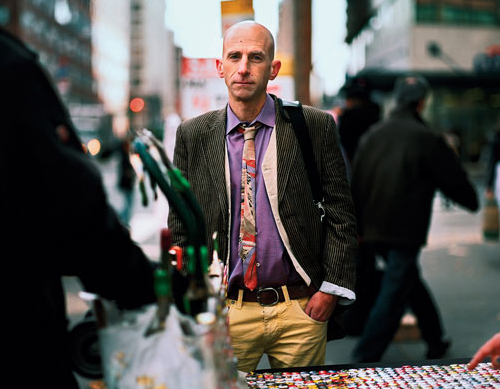Not many people think of shantytowns, illegal street vendors, and unlicensed roadside hawkers as major economic players. But according to journalist Robert Neuwirth, that’s exactly what they’ve become. In his new book, Stealth of Nations: The Global Rise of the Informal Economy, Neuwirth points out that small, illegal, off-the-books businesses collectively account for trillions of dollars in commerce and employ fully half the world’s workers. Further, he says, these enterprises are critical sources of entrepreneurialism, innovation, and self-reliance. And the globe’s gray and black markets have grown during the international recession, adding jobs, increasing sales, and improving the lives of hundreds of millions. It’s time, Neuwirth says, for the developed world to wake up to what those who are working in the shadows of globalization have to offer. We asked him how these tiny enterprises got to be such big business.
Untaxed, Unlicensed, and Unregulated: System D. Economics
There’s a French word for someone who’s self-reliant or ingenious: débrouillard. This got sort of mutated in the postcolonial areas of Africa and the Caribbean to refer to the street economy, which is called l’économie de la débrouillardise—the self-reliance economy, or the DIY economy, if you will. I decided to use this term myself—shortening it to System D—because it’s a less pejorative way of referring to what has traditionally been called the informal economy or black market or even underground economy. I’m basically using the term to refer to all the economic activity that flies under the radar of government. So, unregistered, unregulated, untaxed, but not outright criminal—I don’t include gun-running, drugs, human trafficking, or things like that. [Read More]
The Monsieur’s Brief: Procter & Gamble, Unilever, Colgate-Palmolive may sell a lot of stock through unlicensed vendors (through a 3rd party middleman of course) in developing countries but have you thought about how you found the same bottle of Dove Bodywash or Head & Shoulders Shampoo at the $2 shop for less than retail at Woolworths in Australia. Moral of the story, the blackmarket is a vital part of the global economy and there’s no need to pay full retail when you can shop around and find the same thing at the Thrift Store.

Posted on January 5, 2012
0